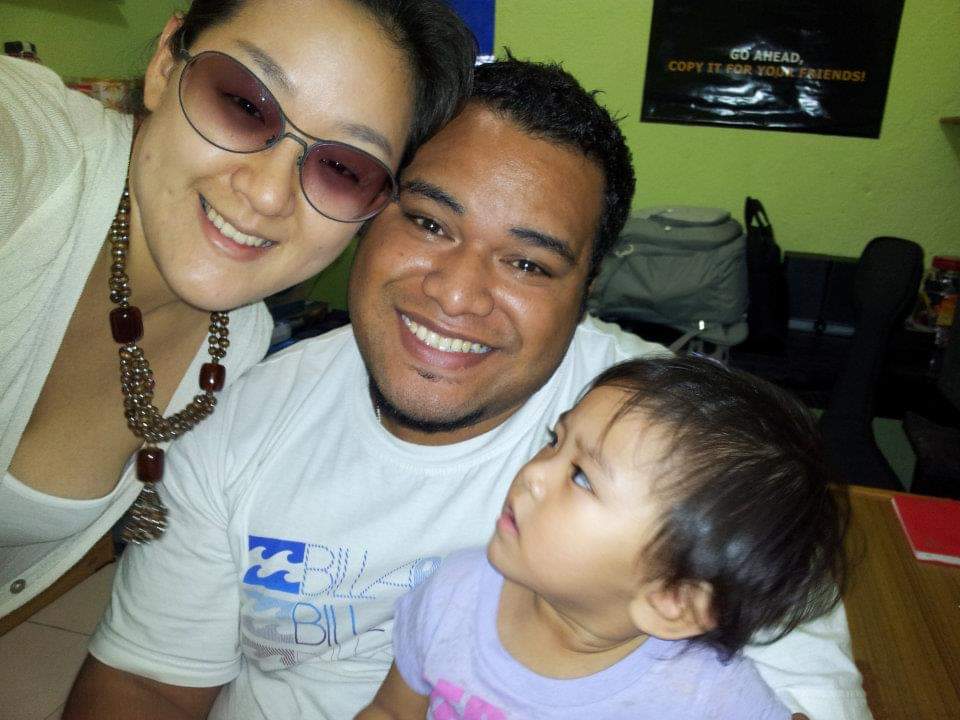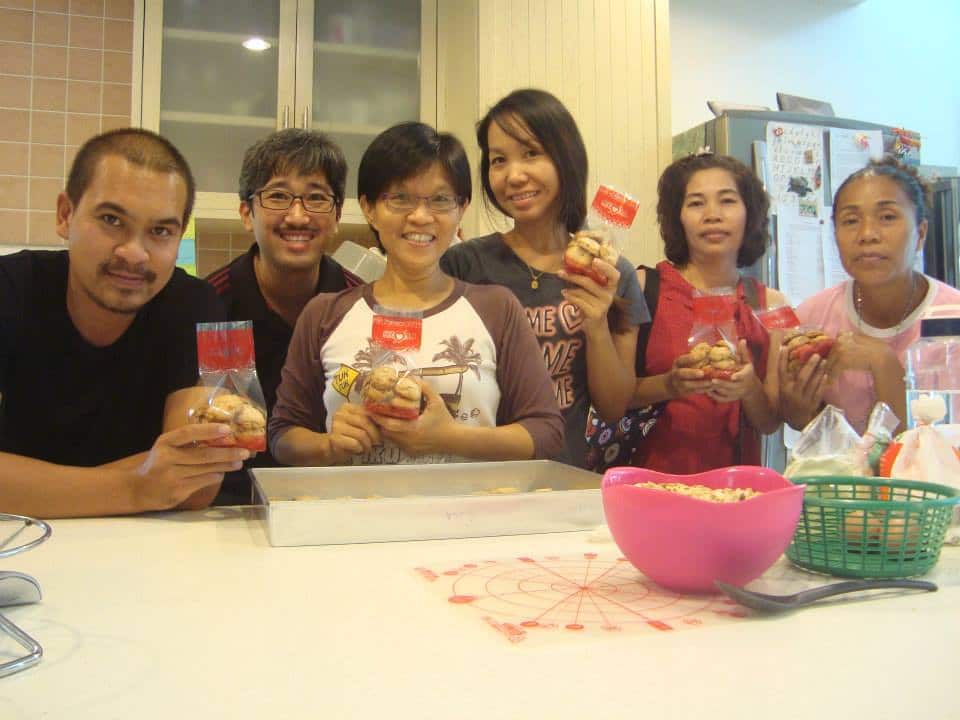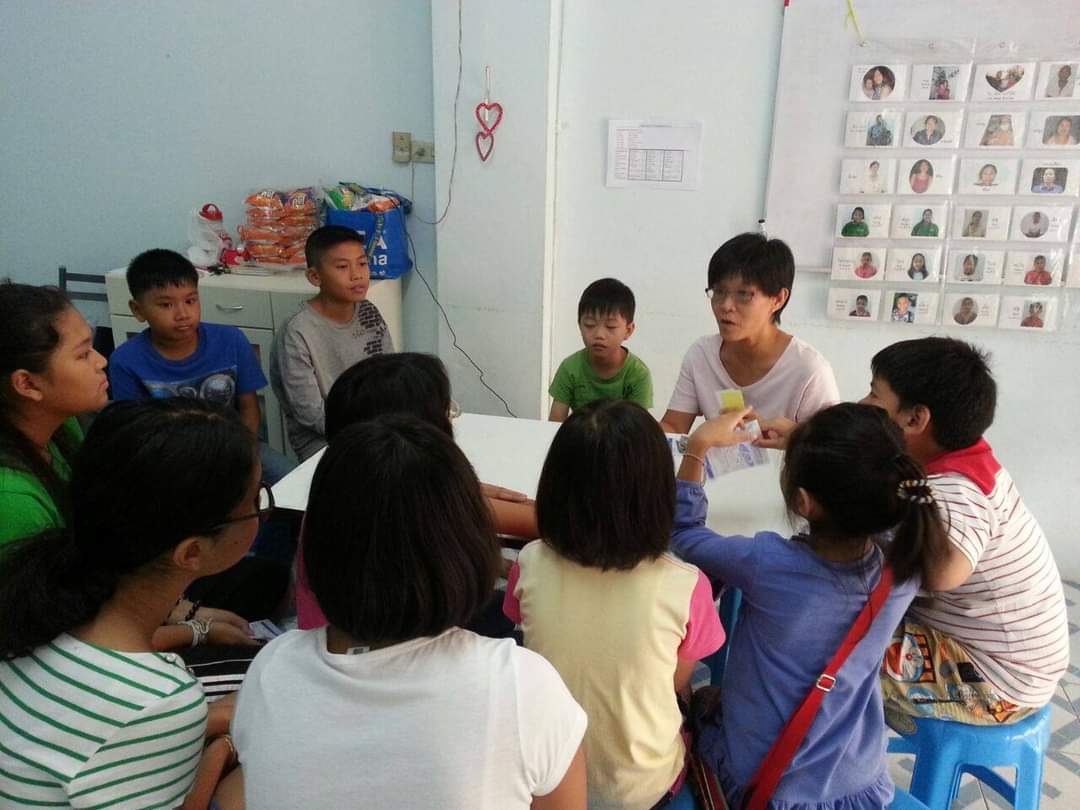“For our parents, the losses are real”: Paying the price of the missions call
Ting Siew Lee // June 3, 2022, 5:44 pm

Ps Saula Havea and Jennifer Eunchim Choi met in Timor-Leste, got married and had their first child on the mission field. Jennifer, who is a first-generation Christian, faced strong family opposition towards her desire to do overseas missions. Photo courtesy of the Haveas.
Ask a Christian about their decision to enter the mission field, and some will say the toughest part may not be the mission itself.
It’s breaking the news of their departure to their parents.
The challenge of navigating family relationships took the spotlight at the second Goer Missions Forum, organised by Antioch21, the global missions arm of LoveSingapore.
A panel of current and former missionaries shared their experiences with close to 100 attendees.
Ting Siew Lee, one of the event’s organisers and former missionary to Timor-Leste for 14 years, shares how prospective missionaries can initiate the difficult conversation.
“If we obey God, it is going to cost other people more than it costs us, and that is where the pain begins. If we are in love with our Lord, obedience does not cost us anything – it is a delight. But to those who do not love Him, our obedience does cost a great deal.
“If we obey God, it is going to cost other people more than it costs us, and that is where the pain begins.”
“If we obey God, it will mean that other people’s plans are upset. They will ridicule us as if to say, ‘You call this Christianity?’ We could prevent the suffering, but not if we are obedient to God. We must let the cost be paid.”
I first came across these words by Oswald Chambers as a young adult who was seriously processing my missions call. It left a deep impression on me, because I felt it described the emotional storms I must be prepared to walk into, if I were to be serious about pursuing missions.
And the eye of the storm, is almost always the family.
More than 15 years have passed since I first told my parents about my decision to go to Timor-Leste. I went out not knowing when I would return. Memories of a few difficult conversations continue to linger even until today.
As I sat and listened to the panellists share their personal experiences wrestling with their families, it struck me how similar some of their experiences were to mine.
It drove home the point that despite differences in the personal circumstances of our lives, our paths converge at many points on the journey to the mission field.
Here are some nuggets of wisdom and advice that stood out for me, and which some of you may also find helpful.
1. Communicate, communicate, communicate
Or to put it more colloquially, “drop hints”, in the words of Derric Song, who served in Thailand for ten years with his wife, Pauline, and their three children.
Derric shared that by taking action towards full-time Christian service, like embarking on theological studies, or regularly going on mission trips, one is sending important signals to our loved ones about our seriousness in missions.

Derric and Pauline Song (second and third from left) served in Thailand for ten years. Photo courtesy of Derric and Pauline Song.
At some point however, merely dropping hints would no longer be enough. Prospective missionaries have to pluck up the courage to initiate conversations with their family about their intentions to pursue missions. I would suggest that the earlier these conversations start, the better.
Early and frequent conversations about our intentions and passions can pave the way for understanding and acceptance.
Often, the missions call is something we guard as something very private and precious. It is hard to talk about, because it springs from the core of our beings.
Yet, to win people over, we need to let them into that private space, and put words to the inexplicable longing to go.
Hard as it may be, we have to overcome our fear of judgement and rejection, and let others know our yearning for a radically different life. We have to open up and confess our love for a particular people group, our desire to serve and make a difference, our thirst for something more.
Over time, these conversations can pave the way for understanding and acceptance.
I believe that at the heart of it, our parents and those who love us want us to be happy and fulfilled, even if they may not immediately agree with or understand the actions we take towards that end.
2. Walk in empathy
When these conversations do take place, there is a good chance that emotions will run high.
“For our parents, the losses are real. There is a sense of abandonment for those who are non-Christians, and even for Christian families,” said Pauline. In their case, it was her mother-in-law who struggled to release them.

Pauline Song (right) amongst Thai children whom she teaches. Photo courtesy of Derric and Pauline Song.
“I put myself in her shoes, and considered how it might feel to see my own children leaving, and not being able to see the grandkids growing up. I cried with her and told her I’m also feeling sad to leave, but I will trust God for the future.”
This degree of vulnerability and empathy is not easy for many of us, growing up in more traditional Asian families that tend not to express emotions outwardly.
I will never forget one particularly difficult encounter with my father one night, as he verbally processed his feelings about my plan to quit my job soon. Throughout the entire time, I felt the Holy Spirit telling me to keep quiet and to just listen, and not to argue. At the end of it, I felt prompted to say just four words, “Dad, I love you”.
3. Let go and trust God with the process
I often say that reality is our best friend. Nothing good happens when we live from a place of merely wishing for good outcomes in our vain imaginations.
I felt Jennifer Eunchim Choi expressed that well when she shared her one piece of advice to those encountering opposition from family.
“You have to be willing to accept when things don’t turn out the way you want them to. I thought, ‘Perhaps God will zap my parents and they’re going to bless me.’ That did not happen.
“The Lord has different scenarios prepared for everyone … As an Asian child, there is no worse feeling than disappointing your parents. But that’s not the end of your story. Fast forward into the future, years down the road, they get to witness what God does in our lives.”
Jennifer is from South Korea and a first-generation believer.

Ps Saula Havea and Jennifer Eunchim Choi now serve in Victory Family Centre in Singapore. When asked how one can stay focused on the call to missions, she shared: “It wasn’t so much about my efforts to persevere. In those situations, the Lord makes everything else look like rubbish. All the other things like reputation and fame completely lost their appeal.” Photo courtesy of the Haveas.
Facing a lot of family opposition to her passion for missions, she realised that the only way she could get her parents to accept her decision to go into missions was if she found a job that would send her overseas, which was what she did.
In 2006, she went to Timor-Leste with the United Nations, where she met and married Saula Havea, who was pastoring a church in the capital city Dili. She gave birth to their first child there. The couple now lives in Singapore with their three children and minister at Victory Family Centre.
No regrets
My personal experiences bear witness to the fact that God is at work in our parents’ hearts.
11 years into my mission, my parents visited my ministry in Timor-Leste, where they spent time with our disciples, staff and the children at the preschool that we founded.
They were welcomed like VVIPs, and it touched me profoundly to see my Timorese family embrace my grey-haired parents who also paid the price for their transformation.
God is at work in our parents’ hearts.
Looking back on the sometimes tumultuous journey of preparing my parents for my departure, and the 14 years of adventure that followed, I have no regrets that I chose the path of long-term missions. I know countless other missionaries will say the same thing with quiet conviction.
The abundant life Jesus promised will elude us, if all we seek is an easy life free from conflict, turmoil and opposition. It is only as we abandon ourselves to His ways and His will that we begin to truly come alive.
And when that happens, the act of bravely facing emotional storms with our families ends up validating our missions call and becomes yet another precious milestone in our walk with God.
The next Goer Missions Forum organised by Antioch21 will be held in-person on September 6, 2022. Follow Antioch21 on Instagram for more information.
FOR MORE ABOUT STEPPING OUT IN MISSIONS:
A picture of a sitting toilet confirmed this couple’s call to missions
We are an independent, non-profit organisation that relies on the generosity of our readers, such as yourself, to continue serving the kingdom. Every dollar donated goes directly back into our editorial coverage.
Would you consider partnering with us in our kingdom work by supporting us financially, either as a one-off donation, or a recurring pledge?
Support Salt&Light



